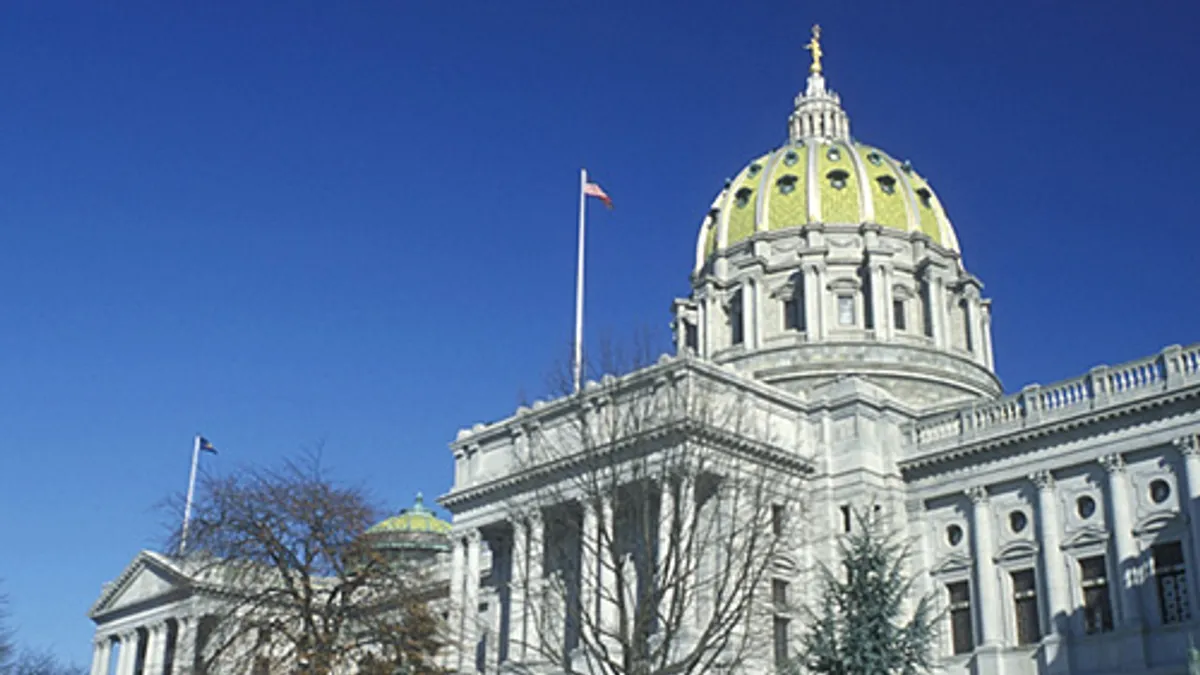Dive Brief:
- The Pennsylvania Public Utilities Commission (PUC) is continuing to investigate how the state can employ alternative rate designs, opening a comment period on how to implement a new law addressing the issue, as well as on its own, related policy statement.
- In June, Gov. Tom Wolf, D, signed legislation allowing utilities to rethink how they earn revenues as part of the state's efforts at electric grid modernization. On Thursday, the PUC approved a tentative implementation order for the law, Act 58, and and will take comments for 30 days after the order is published.
- At the same time, regulators have extended the comment period on a proposed policy statement from May that calls for utilities to "explore alternative ratemaking methodologies" in distribution base rate cases. The comment period in that docket was extended until Oct. 22 after Wolf signed Act 58.
Dive Insight:
States are increasingly looking at new ways to set the prices that customers pay to utilities. Implementation of Pennsylvania's Act 58 allows utilities to seek approval of alternative rates and mechanisms including decoupling, performance-based rates, formula rates, multiyear rate plans or a combination of these alternatives.
In the tentative implementation order issued on Thursday, regulators propose for utilities to bring alternative ratemaking proposals to the commission within the confines of a utility base rate case which "includes an in-depth examination of the utility's financial status and operations."
The PUC also said it interpreted the law to allow subsequent changes or adjustments to a previously approved alternative rate mechanism through a Section 1308 proceeding, relating to voluntary changes in rates.
Regarding the PUC's May policy statement, initial comments filed Aug. 16 by a group of large consumers raised fears that alternative rates could mean higher bills for customers.
Industrial Energy Consumers of Pennsylvania (IECPA) told the PUC it continues to have "significant concerns regarding utilities' potential use of alternative ratemaking mechanisms", particularly to the degree that these mechanisms may implicate higher rates for consumers or may result in rates that are not reasonably connected to the utilities' cost to serve.
The group also recommended regulators consider models used in other states for guidance.
IECPA called on the commission to "implement a deliberate approach" for utilities to introduce new rate structures, and pointed regulators to consider Minnesota's proposed Performance Incentive Mechanism Design Process to develop alternative ratemaking mechanisms.















